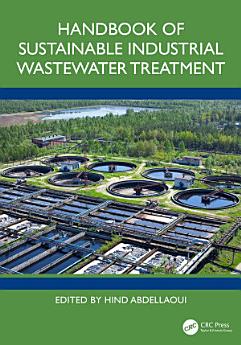Handbook of Sustainable Industrial Wastewater Treatment
About this ebook
This handbook equips readers with the essential knowledge to maintain efficient water treatment systems while implementing sustainable practices that prioritize environmental protection. It showcases cutting-edge treatment technologies capable of removing over 99% of contaminants, all while minimizing maintenance needs, energy consumption, and chemical usage. By offering eco-friendly solutions that significantly reduce operational costs, this handbook emerges as a vital tool for enhancing wastewater management practices across industries.
In addition to traditional methods, this handbook explores innovative strategies that not only improve water quality but also promote resource conservation, ultimately supporting broader environmental sustainability goals. Tailored specifically for researchers, academicians, and professionals in hydrology, environmental science, agricultural engineering, and water resource management, this handbook also benefits postgraduate and doctoral students engaged in water-related research.
About the author
Hind Abdellaoui is currently a research scientist and R&D consultant. She received her PhD in Mechanical Engineering from the National Superior School of Electricity and Mechanics, Hassan II University, Casablanca, Morocco (2015). Her work has been awarded twice: for excellence in Mechanical Engineering at ENSEM and for best thesis at the CMEEE conference in 2015. Since 2016, she has been a professor of Composite Materials, Material Sciences, Mechanics and Structure Analysis at the Engineering School in Rabat, Morocco. In 2020, she joined the University Mohamed VI Polytech as a post-doctoral fellow in the field of Supramolecular Nanomaterials, Composite and Nanocomposite Materials and Nanocellulose Extraction. In addition, she joined the Institute of Nanomaterials and Nanotechnology, Moroccan Foundation for Advanced Science Innovation and Research (MAScIR), Rabat as a scientific collaborator (2014). Her contributions have appeared in over 30 publications as articles, book chapters, and contributed national and international conference papers. Her interest areas include reinforced/filled polymeric composites, lignocellulosic reinforced/filled polymeric composites, nanocomposites as well as manufacturing processes, characterization and prediction of composite behaviour, treatment and surface modification of natural reinforcement, preparation of blend and foam composites, water resource management, and nanocellulose extraction.




